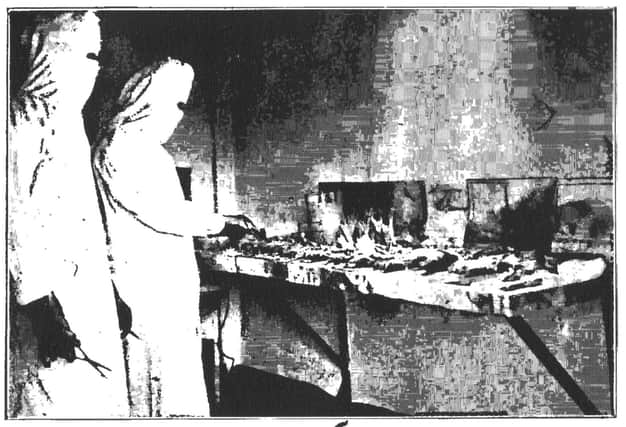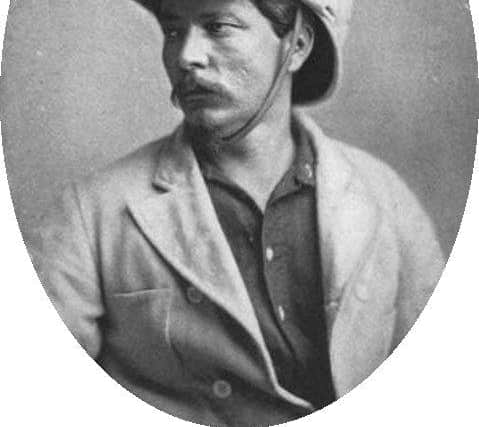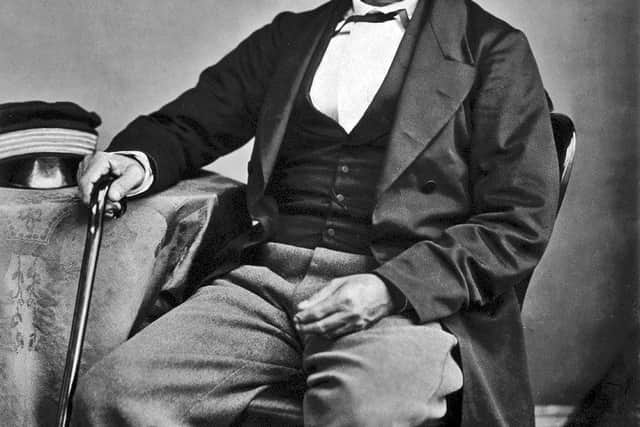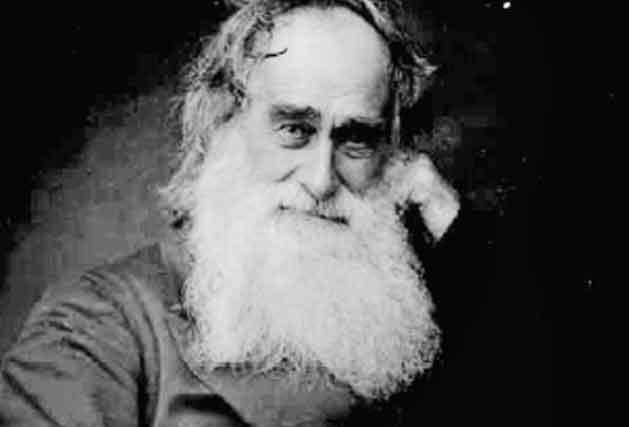Connecting the Covid-19 crisis today with times past in distant lands..!


A poignant note has just arrived in Roamer’s mailbox from County Down author and local-historian Robin Masefield.
While researching Sir Robert’s remarkable role in China’s past for a forthcoming book, Robin discovered some century-old similarities with our current world-wide health crisis, and also with an Irish song: “Are ye right there, Michael, are ye right? Do you think that we’ll be there before the night?”
Advertisement
Hide AdAdvertisement
Hide Ad“With regard to responding to Covid-19, little is new,” Robin explained in his note, adding “over 100 years ago, Emily Daly, an Irish doctor’s wife, wrote (a letter) about the precautions in Newchang town after an outbreak of plague in Manchuria.”


Sir Robert Hart retired in 1908 and returned to the UK but on his visits to North-Eastern China he’d have been familiar with Newchang. Emily Daly was an Irish nurse in the district, a writer, traveller and younger sister of Percy French, author of ‘Are ye right there, Michael’!
In her letter Emily described the ‘lockdown’ in Newchang during Manchuria’s Great Pneumonic Plague of 1910.
“They segregated some 4,000 Chinese in railway carriages, threw a cordon round them, kept suspects separate, and thus saved the town. The Commissioner and his staff, Europeans and Chinese, lived inside a large compound. When the epidemic was at its height, no one was allowed to leave this compound.”
Advertisement
Hide AdAdvertisement
Hide Ad‘They’ at the start of Emily’s letter were the authorities - “an interesting mix of Chinese, Russians and Europeans working together in a time of considerable international tension,” Robin explained.


Emily’s letter also included a vivid description of the medical attire worn by the doctors and their helpers.
“White overalls, with the peaked cowl (large loose hood) rubber gloves and top-boots, and a mask and respirator. When actually attending plague patients or suspicious cases, doctors and nurses also wore goggles and a cotton-wool plug on either side of the nose…. The infection is chiefly from inhalation, so we all go about wearing respirators.”
Robin Masefield sourced a faded photograph of Manchurian medical workers in their old-fashioned PPE, and added that the medics’ efforts and lockdown largely spared Newchang the horrors of a plague.
Advertisement
Hide AdAdvertisement
Hide AdThe rare and deadly infection was mostly confined to China’s North-Eastern provinces, though cases were reported sporadically throughout the empire, in Tianjin, Beijing and along the Beijing-Hankou railway line stretching down into central China, reflecting the scale of the epidemic. The death toll hasn’t been accurately recorded but existing reports from the time suggest that between 50,000 and 60,000 people died, with an unprecedented mortality rate of 100 per cent. It would have been statistically similar to the Great Plague of London in 1665-66.


Another poignant note in Roamer’s mailbox relates to the current plans for furlough, temporary lay-offs during the coronavirus crisis with the government paying 80% of workers’ salaries for three months. When the furlough scheme was first announced, few folk here and around the UK were familiar with the word.
“Without the furlough,” a reader explained “the famous journalist and explorer Henry Stanley would never have spoken his historic words in Africa in 1871 - ‘Dr Livingstone I presume?’”
Most of us know that Dr David Livingstone was a Scottish missionary and one of history’s greatest explorers of Africa. In 1855, he discovered and named the Victoria Falls and reached the mouth of the Zambezi in 1856, becoming the first European to cross the mostly unmapped continent.
Advertisement
Hide AdAdvertisement
Hide AdSir Henry Morton Stanley was the Welsh newspaper reporter hired by the New York Herald to find Livingstone who’d completely lost contact for many months, somewhere in Africa.
It’s an epic story that’s often been recounted, depicted and portrayed in a multitude of films, paintings, books, television, programmes and even in a song by ABBA - What About Livingstone. Stanley found Livingstone near Lake Tanganyika in October 1871 and (apparently!) uttered his famous greeting “Dr Livingstone I presume?”
And what’s the vital connection with the Government’s furlough scheme?!
Since at least the early 1800s missionaries took a year off every four of five years to come home from foreign lands on a ‘working holiday’, recounting their work in countless public meetings and thus raising money for their mission.
Advertisement
Hide AdAdvertisement
Hide AdThis was called furlough, and in 1839 a Scottish Congregationalist missionary called Robert Moffat was home on furlough from Africa when the young David Livingston attended one of his meetings.
Speaking about his missionary work in Africa Moffat, said: “I have sometimes seen, in the morning sun, the smoke of a thousand villages, where no missionary has ever been.”
David Livingstone was thus inspired to go to Africa and also to marry Robert Moffat’s daughter Mary! But the word furlough has had multiple other usages. In the 1880s military home-leave was called furlough, and was also used in the case of convicts, parole, probation, conjugal visits or work release from prisons.
A 2018 American comedy-drama movie called Furlough featuring Whoopi Goldberg is about a rowdy prison inmate who gets a weekend furlough to visit her ailing mother.
The film got a 20% rating on Rotten Tomatoes!
A message from the Editor:
Advertisement
Hide AdAdvertisement
Hide AdThank you for reading this story on our website. While I have your attention, I also have an important request to make of you.
In order for us to continue to provide high quality and trusted local news on this free-to-read site, I am asking you to also please purchase a copy of our newspaper whenever you are able to do so.
Our journalists are highly trained and our content is independently regulated by IPSO to some of the most rigorous standards in the world. But being your eyes and ears comes at a price. So we need your support more than ever to buy our newspapers during this crisis.
With the coronavirus lockdown having a major impact on many of our local valued advertisers - and consequently the advertising that we receive - we are more reliant than ever on you helping us to provide you with news and information by buying a copy of our newspaper when you can safely.
Advertisement
Hide AdAdvertisement
Hide AdYou can also enjoy unlimited access to the best news from across Northern Ireland and the UK by subscribing to newsletter.co.uk
With a digital subscription, you can read more than five articles, see fewer ads, enjoy faster load times, and get access to exclusive newsletters and content. Visit https://www.newsletter.co.uk/subscriptions now to sign up.
Thank you